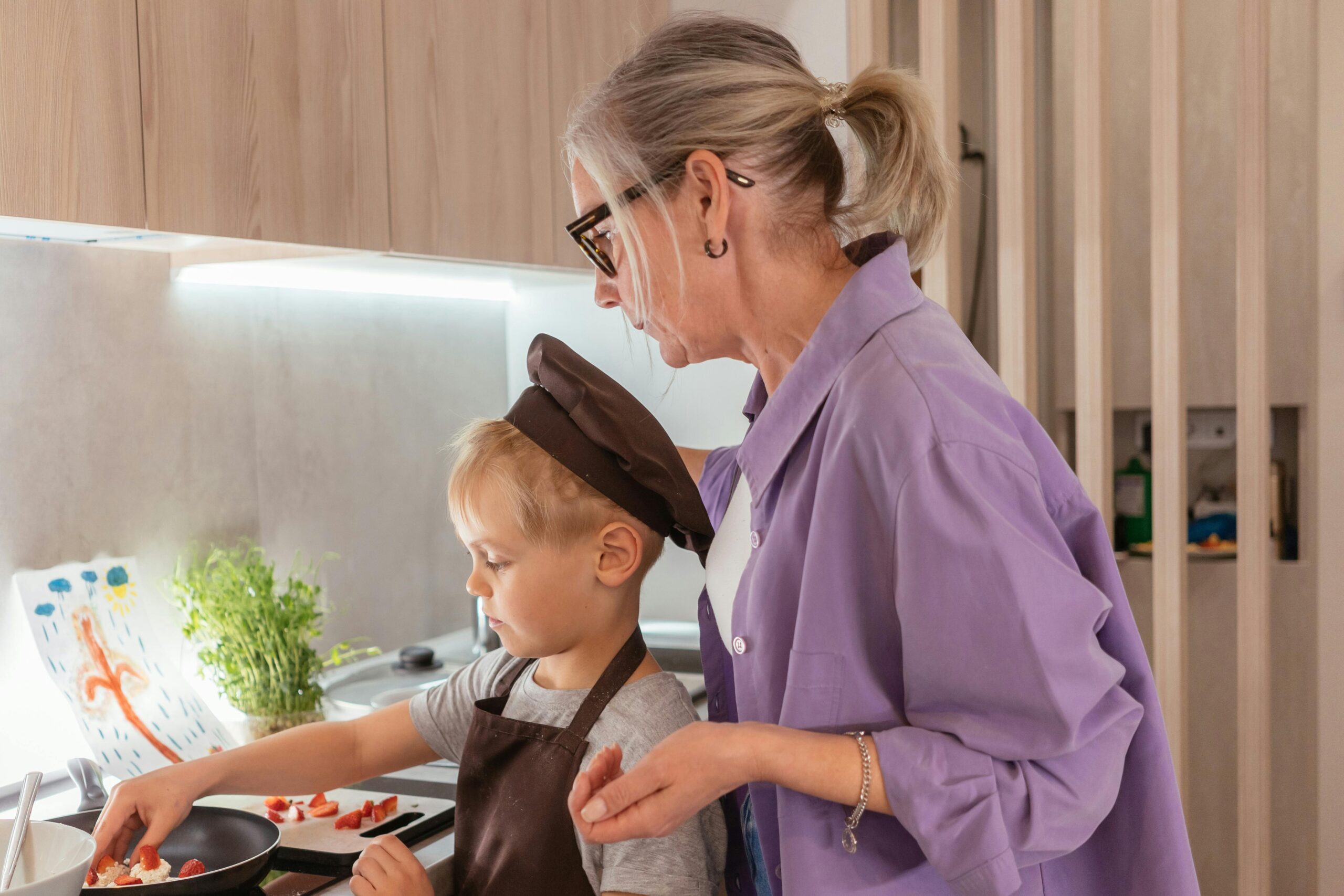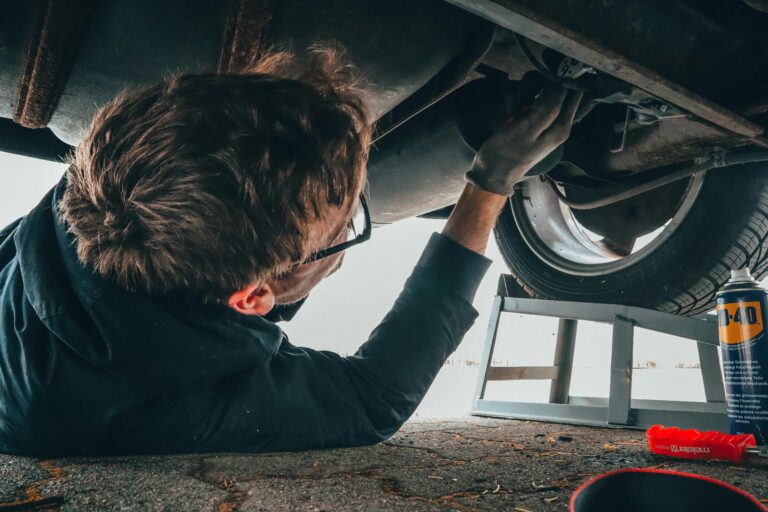Kitchen Assistant Jobs in Australia with Visa Sponsorship
Kitchen Assistant Jobs in Australia with Visa Sponsorship (2025 Guide)
Why Australia Needs Kitchen Assistants
Australia’s food service and care sectors are busy on all fronts: tourism has rebounded, university intakes bring waves of new diners to campus outlets, aged-care and hospital kitchens run year-round, and mining camps, stadiums, and events ramp up seasonally. Behind every plated meal is a system that lives or dies by punctual prep, hygiene discipline, and steady throughput—and kitchen assistants keep that system breathing. When rosters stretch thin or new facilities open faster than locals can be trained, employers turn to visa sponsorship to stabilise operations.
Great kitchen assistants aren’t just extra hands; they’re risk reducers. Fewer prep errors mean less food waste; cleaner benches and correctly labelled allergens mean safer guests and fewer incidents; fast, tidy dish cycles keep service moving. Those outcomes matter to managers, quality auditors, and insurers who watch incident trends closely. If you arrive decision-ready—with references, food-safety certificates, and availability that fits shift patterns—you make it easy for HR and operations to say yes. Practical life admin helps, too: set up an Australian bank account, choose a low-fee credit card for relocation and uniform costs, and protect your credit score with on-time payments so you can secure rentals close to hotels, hospitals, or campuses.
Where You’ll Work & What the Environment Feels Like
“Kitchen assistant” spans many settings, each with a different rhythm:
-
Hotels and resorts: banquet spikes around weddings and conferences, breakfast sprints, and late-night room service.
-
Restaurants and quick-service chains: tight stations, rapid turnover, and strict shelf-life controls for prepared items.
-
Hospitals and aged care (food services): diet codes, texture-modified meals, allergen controls, and clinical timetables.
-
University cafeterias and corporate catering: weekday peaks, menu cycles, and high batch prep.
-
Remote sites/mining camps: large headcounts, rostered living, and long but predictable shifts with catered staff meals.
-
Event venues and stadiums: intense pre-service prep, short windows for service, and huge surge clean-downs.
Despite the differences, fundamentals are constant: clean as you go, label everything, communicate early, and move with purpose. The best assistants learn more than one station (prep, cold larder, pot wash, dispatch), letting the head chef redeploy them to the day’s bottleneck without drama.
Core Duties You’ll Own (And How to Do Them Like a Pro)
Prep and mise en place: Wash, peel, chop, portion, and tray-up. Use the correct knife for the job; keep a damp cloth under the board to stop sliding; calibrate scales; and stick to the spec to protect cost and nutrition targets. Batch and chill safely.
Dishwashing and pot wash: Scrape, rinse, rack, and load. Keep chemicals at the right concentration; check water temps; stagger loads to avoid big queues; and change water before it turns into soup. Pot wash is about leverage—use the soak, use the right scourer, and protect coatings on non-stick and cast iron.
Storage and rotation: FIFO isn’t a slogan; it’s money. Date-label everything, split big trays into shallow pans to help chill quickly, keep raw and ready-to-eat separate, and never park hot items on the top shelf where they warm everything else.
Allergen and dietary handling: Follow colour-coded utensils and boards, keep allergen-free areas clean and separated, and re-wash tools if anything touches a flagged ingredient. Double-check labels when portioning gluten-free or nut-free items and call for a supervisor if there’s any doubt.
Cleaning and sanitation: Follow the daily/weekly cleaning schedule—hoods, filters, drains, skirtings, fridge door seals, and the dreaded floor edges where grime hides. Document what you do; those logs protect accreditation and insurance.
Service support: Plate assembly, garnish, pass running, and tray transport (in hospitals/aged care). Speak up if a dish looks wrong—chefs would rather hear a quick question than remake a tray of meals.
Food Safety & Compliance You Must Respect
Australian kitchens operate under strict food-safety expectations. You’ll live these rules daily:
-
Temperature control: Cook to safe internal temps; keep hot above 60°C and cold at 5°C or less; use probe thermometers and sanitise between checks. Rapidly chill high-risk foods—blast chiller if available, or shallow pans with good airflow.
-
Cross-contamination prevention: Separate raw from ready-to-eat; use colour-coded boards; wash hands between tasks; keep sanitiser buckets fresh and correctly diluted.
-
Personal hygiene: Clean uniform, tied hair or hairnet, trimmed nails, no jewellery. Wash hands after touching bins, phones, or your face.
-
Traceability and labelling: Record batch dates and use-by; label allergens clearly; keep delivery dockets and temperature checks on file.
-
Allergen discipline: Treat an allergen-free order like a sterile field—fresh gloves, separate equipment, a clean section, and a visual double-check before it leaves the pass.
Compliance isn’t bureaucracy—it’s brand protection and public health. Clean logs, temperature charts, and allergen checklists keep auditors and insurers calm and clients loyal.
Tools, Equipment & Light Tech
Expect knives, mandolins, mixers, slicers, combi ovens, tilt kettles, blast chillers, dishwashers, and labelling printers. Look after your kit: keep knives sharp (a dull blade is a dangerous blade), don’t overload mixers or racks, descale coffee machines on schedule, and clean combi oven gaskets so doors seal properly. Many sites use light tech—digital temp probes with logging, HACCP-style apps for checklists, QR codes for cleaning schedules, or menu-planning software. Treat the device like a food tool: clean hands, timely entries, and no “catch-up” logging that could burn the team in an audit.
Soft Skills that Get You Promoted
-
Pace with patience: Move fast, but don’t skip checks that would cause rework.
-
Radio/voice discipline: Short, clear updates—“Allergen-free tray leaving cold larder in 60 seconds.”
-
Anticipation: Refill mise before it empties; swap bins proactively; stage racks by next task.
-
Documentation reflex: If you didn’t record it, it didn’t happen.
-
Respect for the line: Never block the pass; never park a trolley in the way; always clear a path for hot pans and trolleys.
These habits lower incidents, keep costs down, and make you the person chefs want next to them on a busy service.
Visa Pathways & Sponsorship—What Works in Practice
The most common route is employer sponsorship via a TSS 482 visa when the business demonstrates genuine need and your role maps to the nominated occupation. Strong performance can lead to ENS 186 permanent residency after tenure and ongoing demand. If you’re open to non-metro life, 190/491 regional pathways and some DAMA agreements can accelerate options, particularly for hospitals, aged-care providers, resorts, and remote sites.
Arrive decision-ready: passport, police checks, medicals (if required), food-safety training certificates, two references on letterhead (with contact details), a short duty list that matches the occupation, and any recognition of prior learning. Maintain continuous health insurance (e.g., OVHC where applicable) to meet visa conditions. Put cost-sharing in writing—nomination fees, medicals, relocation, temporary accommodation. If your case includes dependants or tricky history, a quick consult with migration lawyers can prevent weeks of back-and-forth.
Mapping Your Duties to the Occupation (So HR Can Say “Yes”)
Sponsorship succeeds when your paperwork mirrors the job. Use consistent titles and dates across your CV, references, and online profiles. Describe actual tasks: prep volumes, diet code handling, allergen controls, batch sizes, dish/utensil throughput per hour, and cleaning schedules you executed. List equipment you’ve used (combi, blast chiller, industrial dishwasher, labelling systems), and mention any responsibility you held (opening checks, closing checklists, fridge temp rounds). This clarity reassures HR, auditors, and insurers that the nomination reflects reality.
Who Sponsors & How They Hire
Likely sponsors include hotel groups, resort operators, hospital networks, aged-care providers, university caterers, large restaurant brands, contract caterers, and remote-site catering companies. Hiring patterns:
-
Hospitality (hotels/resorts): quick phone screen, in-person or video interview, practical trial (knife test, simple prep, dish cycle), references.
-
Health & aged care: immunisation checks, infection-control questions, diet code scenarios, and a structured orientation block.
-
Remote sites: medicals, roster discipline checks (2/1, 3/1), and logistics readiness.
What wins offers? Attendance, clean safety record, cheerful discipline under pressure, and decision-ready documents.
Pay, Rosters & Total Value (Not Just the Hourly Rate)
Comp ranges vary by city and sector. You’ll typically see hourly pay with penalties for nights, weekends, and public holidays. Health and aged-care roles often align to enterprise agreements with predictable increments; hotels and resorts may add staff meals, accommodation discounts, or subsidised transport; remote sites include flights, camp housing, and site allowances. Ask about:
-
Guaranteed hours vs zero-hour arrangements
-
Paid training time and ticket renewals
-
Uniform/knife/footwear allowances
-
Shift patterns and roster stability
-
Overtime approvals and stand-down rules
-
Any health insurance subsidy
On your side, keep finances simple: a low-fee credit card helps with relocation and gear; protect your credit score with on-time repayments to secure better rentals and phone plans.
Career Progression: Where This Role Can Take You
Kitchen assistants who master pace and hygiene can move into commis chef roles (especially in hotels and remote camps with structured training). Others progress into storeperson/inventory, QA/food-safety monitors, banqueting support, or supervisor positions overseeing crews and checklists. In hospitals/aged care, you may step into diet aid or kitchen supervisor roles, coordinating tray lines and liaising with nursing teams. Each step up builds on the same base: reliable hygiene, calm communication, and documentation you can trust.
Where to Find Jobs & How to Apply
Use Seek, Indeed, and LinkedIn with combinations like “kitchen assistant visa sponsorship”, “food services 482”, “hospital kitchen sponsorship”, or “remote camp catering visa”. Then apply directly via employer portals—hotel brands, hospital networks, aged-care providers, university caterers, and remote-site caterers often advertise roles that never hit aggregators.
Application toolkit:
-
Two-page CV with a Skills Snapshot (food safety, allergen handling, knife skills, dish systems, equipment, any infection-control certs).
-
Outcome bullets: “managed 300+ dishes/hour with zero cross-contamination incidents,” “kept re-cleans under 2% during peak,” “maintained 100% completion of cleaning logs.”
-
Compliance PDF: ID, certificates, police/medical checks (if needed), references, visa status.
-
Short cover note: show shift flexibility, willingness to relocate, and your earliest start date.
Reply to interview invites within 24 hours; decision-ready candidates move first.
Interview & Trial Shift: How to Shine
Expect a short practical: a brunoise or julienne test; a batch of salad packs to spec; a blitz of dish racks; or a cleaning task with a checklist. Call out hygiene steps as you work: “I’m washing hands and changing gloves before the allergen-free order.” Keep your station tidy and your movements economical. On questions, use the problem-step-result frame:
-
Problem: Dinner service fell behind; dishes stacked; pass congested.
-
Steps: Split racks by size, staged pre-rinse, rotated two racks per cycle, wiped splash zone for safer footing.
-
Result: Cleared backlog in 20 minutes; no slips; service back on pace.
Close the interview by confirming start date, roster flexibility, and relocation readiness. Leave them with the sense that you make busy services calmer.
First 90 Days Plan (Steal This)
Weeks 1–2: Learn the cleaning matrix, fridge map, diet codes, and allergen rules. Ask to do the opening and closing checklists so you see the kitchen’s whole day. Fix one small pain point—label racks better, reorganise the wrap/foil drawer, or stage sanitiser buckets where people actually need them.
Weeks 3–6: Cross-train on a second station (cold larder if you started in dish, or vice versa). Take responsibility for a daily temp round and produce clean, on-time logs. Track your own throughput: racks/hour, trays packed, kilos prepped—then quietly beat your baseline.
Weeks 7–12: Own a weekly deep-clean task (hood filters, drains, gasket scrub) and teach a new teammate your checklist. Propose a small improvement (e.g., shallow-pan chilling for soup to hit safe temps faster). Share before/after photos and time saved. That’s how supervisors decide who to nominate for visa extension or promotion.
Cold Reality: What Derails Sponsorship (Avoid These)
-
Occupation mismatch: CV talks general labour or front-of-house but references don’t describe kitchen tasks.
-
Inconsistent titles/dates across CV, references, and online profiles.
-
Weak safety language: no mention of temperature control, allergen discipline, or cleaning logs.
-
Allergen complacency: casual attitude during trials—instant red flag.
-
Slow admin: missing scans, incomplete checks, late replies to HR.
-
Unclear cost sharing: arguments about who pays nomination/medicals/relocation. Get it in writing.
Mitigation is simple: honest mapping, tidy documents, quick responses, and plain-English confirmations. If a clause looks murky, ask HR to clarify or request a quick read from employment lawyers.
Insurance, Legal & Personal Finance Essentials
Know the protections around you:
-
Public liability insurance (your employer’s): covers third-party incidents in the venue.
-
Workers’ compensation: covers injuries at work; report incidents immediately and follow the process.
-
Product liability is more chef/venue-level, but your hygiene and labelling discipline reduce exposure for everyone.
-
Contract clarity: probation terms, overtime approvals, stand-down rules, uniform deductions, and training pay—ask for plain-English summaries. If something feels off, get advice from employment lawyers before signing.
Personally, keep health insurance continuous if your visa requires it, pay your credit card on time, and keep utilisation low to protect your credit score—helpful for securing accommodation near work. Track deductible expenses (approved footwear, some training costs) to make tax time painless.
Remote & Regional Options (Fast Paths to Sponsorship)
Resorts, tourism towns, and remote camps often sponsor faster because roles are harder to fill. Expect structured rosters (e.g., 2/1, 3/1), longer shifts, and camp rules. The trade-off is steady hours, included meals, and a tight, supportive team. Ask about flights, baggage limits, laundry, room share policies, and Wi-Fi. Regional hospitals and aged-care facilities also sponsor consistently—community living, predictable rosters, and strong teamwork define these roles.
Templates & Snippets You Can Use
Sponsor Outreach (Email/DM)
“Hi [Manager], I’m a kitchen assistant with 3+ years across hotels and hospital food services. Recent outcomes: maintained 100% completion of temperature and cleaning logs, supported an average of 320 meals per service with zero allergen incidents, and reduced dish cycle backlogs by reorganising the pre-rinse station. I’m visa-ready, can relocate within four weeks, and I’m happy to complete a paid trial. Could we schedule a short call?”
Resume Bullets to Adapt
-
Batched and chilled 60 L soups to safe temp in <90 mins using shallow pans and blast chiller logs; audit pass maintained.
-
Managed 300–400 dishes/hour at peak with zero slips; reorganised racks for safer flow; sanitizer concentration checks every 30 mins.
-
Executed terminal cleans of combi ovens and hoods weekly; downtime reduced by 20%.
-
As diet aid support, prepared 45 texture-modified trays/meal with correct labelling; error rate <0.5% for quarter.
-
Trained 5 new starters on allergen discipline and FIFO labelling; re-cleans fell 25% in two months.
Interview Scenario Prompt (Answer Framework)
“A gluten-free tray is ready but you notice the salad tong previously touched croutons.”
-
Stop and discard the salad portion; sanitise or replace the tong.
-
Prepare a fresh salad in a segregated area using clean utensils.
-
Change gloves, wipe station, and relabel the tray.
-
Notify supervisor; log the near-miss.
This keeps the guest safe and protects the venue’s insurance and reputation.
Sustainability & Waste Reduction (Where You Can Lead)
Food waste is money. Suggest smart, low-risk changes: repurpose trim for stock where policy allows, switch to shallow pans for faster cooling (less spoilage), and segregate organics to reduce landfill costs. In dish, pre-scrape with squeegees to cut water use and keep drains happier. Track wins: kilos of organics diverted, fewer expired tubs, quicker cool-down times. Operators love assistants who save money without risking compliance.
Frequently Asked Questions
Do I need a culinary qualification?
Not always. Many sponsors prioritise food-safety training, references, and trial-shift performance. Qualifications help, especially for promotion toward commis roles.
Will the employer pay for my visa?
It varies. Many cover nomination fees; medicals and police checks are often shared. Get cost sharing in writing and, if uncertain, ask lawyers for a quick read.
Can I switch from a sponsored role to another employer later?
Usually yes, with a new nomination. Keep continuous health insurance and good standing; ask HR or a migration adviser about timelines and conditions.
Is hospital food service very different from hotels?
Yes—diet codes, infection control, and documentation are stricter. But pace and cleanliness habits transfer well if you treat compliance seriously.
Bottom Line
Kitchen assistants make Australian kitchens safe, fast, and dependable. If you can match pace with precision—clean hands, clean logs, clean labels—and you communicate calmly under pressure, employers will sponsor you. Package your achievements into a tidy compliance file, confirm visa logistics in plain English (lean on lawyers when necessary), maintain continuous health insurance, and keep your personal finances as disciplined as your mise (sensible credit card, protected credit score). Do that, and you won’t just land a job—you’ll build a career that climbs from the pot wash to the pass, with permanent residency on the horizon. Ready to get on the roster?






